- Home
- Patricia McLinn
Prelude to a Wedding Page 6
Prelude to a Wedding Read online
Page 6
She had the notion that her nerve endings had retreated from her limbs and brain, leaving them weightless and empty. But there seemed nerve endings to spare in other parts of her body, the parts in contact with his, where the impression of his flesh seemed to pass through layers of his clothes and hers, and into her skin.
He shifted, bringing her into closer alignment with his body, so her breasts absorbed the firmness of his chest. Pressing his arm against her hips, he settled her into the narrow cradle created by his wider stance, and she recognized the sensation of another male firmness.
For an instant, an instant without consequences, without responsibilities, she felt only a responsive softening and warming.
But she had spent too much of her life following step after careful step toward a specific end not to know that with such incendiary steps as these, one thing would most definitely lead to another.
She pulled away from his mouth with a gasp that was partly driven by a need for oxygen and partly by disappointment at the separation. A step backward got her nowhere because his arms held her fast, and pushing her hands against his chest got no results. For a breath, her mind acknowledged her situation, alone on the beach with a man strong enough to hold her against her will. But she didn't truly fear him. Perhaps she would have if she hadn't realized that the deep, uneven breaths he pulled in as he rested his cheek against her temple were his method of regaining equilibrium.
He's shaken, too, she thought. His reaction steadied her, making her own responses seem less extreme. She was also, at some level, grateful he hadn't let her go. She wasn't sure she could have stood alone in those first seconds.
When, with a last long breath, he loosened his arms, she stepped clear of the heat. With quick, unconscious movements, she straightened her jacket, twisted her blouse into line, smoothed her skirt and ran her fingers through her hair. Only when her hands moved to her lips, a reflexive reaction to the burning sensation there, did she feel Paul watching her. His gaze slanted at her from the side. She stopped her gesture half-made.
"I, uh—" She stopped to clear her throat, and started again. "I think we'd better get back now."
For a man so full of teasing words and easy talk, he could be amazingly quiet. She couldn't even be sure if she heard or imagined the half sigh before he spoke the single word. "Okay."
They started across the sand toward the lights of Michigan Avenue. He seemed content to let silence stretch between them. She wished he wouldn't. It gave her too much time to wonder what he was thinking, why he was so uncharacteristically— What? Almost solemn?
Was that how he felt after kissing her? Solemn? If she'd learned anything about Paul Monroe over the past two evenings it was that solemnity lived outside his philosophy of life. She felt like a thundercloud at a picnic, and fought the ridiculous urge to shed a few raindrops right now.
"Well, one thing for certain."
His voice made her jump, but she welcomed it and, as they emerged into the brighter lights and firmer ground of the city's streets, she gladly supplied the line he'd demanded. "What's that?"
"I definitely won't be doing my Christmas shopping early this year."
"Why not?" She didn't really care, but as long as the wryness had returned to his voice, she'd encourage him.
"Who can think about Christmas when they just went through a heat wave?"
* * * *
This time when they pulled into her driveway, she was ready.
She wasn't sure how she'd respond if he repeated last night's soft caress, not after tonight's disconcerting taste of another kind. Even though their conversation during the drive had been innocuous and friendly in the extreme, with no hint of a reference to the embrace on the beach, she'd take no chances.
So she laid a cool hand on his forearm to forestall his turning off the ignition, yanked it back as if she'd been burned, forced a cheerful good-night and practically sprinted to the front door. She stood inside again, listening for long, heart-thudding moments until he backed up and drove away.
Not until she slid between the crisp clean sheets did she shake those moments on Oak Street Beach long enough for other considerations.
Leaving work early—and any time before seven was early for her—and getting home too late to do any work Wednesday had put her behind. Today made it worse.
She'd have to keep a strict schedule to catch up. Especially since she'd earmarked Sunday for attending real estate open houses to get a fix on the market. And added to her duties Monday would be getting Paul to decide on a temporary secretary.
She frowned. When Jan first came into Top-Line Temporaries, she'd described her boss's aversion to schedules and long-term planning. "Short-term planning, too, most of the time," Jan had added. Cheerfully and amid all the teasing of the past two evenings, he'd confirmed it.
I wonder if he views women the same way he views Christmas shopping? she thought. Her frown deepened. Probably. What else could she expect? Someone who couldn't commit himself to buying a present because something better might come along surely wouldn't commit himself to a woman.
She rolled to her side and punched the already plumped pillow. Not that it made any difference. Paul was a client. Period. A client with whom she would have a few business conversations, but would likely never see again. If she was smart.
* * * *
She was smart, but her heart was a moron. That was the only explanation for the way it started pumping at high speed and depleting her oxygen stores when she opened her front door to Paul Monroe at 3:25 Sunday afternoon.
This morning she'd pored over real estate ads in the Tribune. This afternoon she'd attended open houses. She'd studied the market for months, honing her prerequisites in a house, her must-haves and should-haves. This, her first foray into inspecting houses, constituted the next step. After several Sundays sampling the market, she would target specific areas. Then would come the nitty-gritty of offers, contracts and mortgages.
Once she completed that, it would be time for the next step. She slipped off her shoes, tucked her feet under her on the couch. She wanted a husband, a family. Just turned thirty in July, she had time. It wasn't as if her biological clock were about to expire. But she didn't want to let that pass her by. She saw the life her brother was creating with his wife and children and, although she wouldn't want a carbon copy, there were elements she longed for.
Setting up the business had been first; it was progressing well. Then a house. Once she'd accomplished that, she'd be ready for the next step. She'd be ready to look for the right kind of man.
Gray eyes flecked with green smiled into her imagination. She glowered at them, and the startlingly clear memory of the man they went with.
Paul Monroe was not her idea of the right kind of man.
But he is some kind of man, commented a previously unheard-from voice inside her. The voice had backing from a hundred-thousand nerve endings that retained vivid memories.
Damn. She thunked her feet down on the floor. Damn.
All right, maybe she did find him physically attractive. Really, it couldn't be called more than that after one kiss. One kiss, in the moonlight, on a deserted beach. A fluke. It had to be. Because, heaven knows, nothing in his haphazard approach to life or business agreed with her ideas.
She picked up one of the real estate listings from the pile on the coffee table while the TV wrapped up the Bears game she'd mostly missed. For now, what she had to do was consider the information on the houses she'd seen. With her shoes kicked off and a soft drink at hand, she would concentrate on comparing cost per square foot and making notes of her impressions. She settled back.
The doorbell sounded.
Barefoot, she carried the listing sheet and her pen to the front door. She nearly dropped them both.
"Paul!"
She'd missed him. The realization hit hard.
Afternoon sun bronzed his breeze-ruffled hair and seemed to add a special glint to gray eyes flecked with green fire. He wore a blue shir
t with the sleeves rolled to his elbows, a lightweight insulated vest in green and jeans that had been worn to a state that looked as soft as she knew they'd feel. She felt her cheeks burn at the realization that she'd been thinking about touching his jeans—with him in them.
"Hi. How 'bout those Bears, huh?" Without waiting for her to invite him in, he walked right past her. "I like the running game this year, don't you?"
"What are you doing here?" She'd trailed him into the living room. His intent gaze took in her house as if he thought he'd be tested on it. The absurd urge to tell him she'd bought this furniture to go into an eventual family room and she had her eye on an elegant couch bubbled to her lips, but she turned it sternly back.
"I came to get you. You look great."
At his warm tone, she glanced down to see if she'd been transformed, like Cinderella going to the ball. No, she still had on a surplice-wrap top in a soft raspberry color, tucked into the gathered denim skirt. Her simple leather belt matched her discarded loafers and she wore plain gold hoops in her ears as her only jewelry. In deference to the warm weather she hadn't even worn hose. Clean and comfortable was about the most that could be said for the outfit.
"Get me?" She ought to be taking better control of this conversation.
"Yeah. You'd better put a jacket on. It's going to get cool tonight. I think Indian summer's about to come to a screeching halt."
"What are you talking about?"
He glanced up from turning off her TV, and she saw the devilment in his eyes. The only thought her brain could form was the refrain she had come to associate with Paul Monroe: Uh-oh.
"The weather."
"What?"
"That's what I'm talking about—the weather." He scooped up her navy cardigan sweater from the arm of the couch and her purse from the floor and held them out to her. Numbly, she accepted them. But she also shook her head, and that helped clear some of the cobwebs.
"Paul, we didn't make any arrangements to see each other today, and I have things I need to get done—"
"What you need is a jack-o'-lantern, and I intend to see to it. C'mon, you'd better put your shoes on, too."
"No."
He looked at her bare feet, over to her loafers, then at her face. "I don't know, Bette, I think your feet'll get awfully cold, but if you don't want to wear shoes . . ."
"Not no to the shoes. No to leaving with you." There, that sounded firm enough. So why did she feel so rotten? Had those glints of light in his eyes dimmed?
"I thought you'd like a pumpkin." His tone was matter-of-fact, but she felt as if she'd just kicked his puppy.
"I would like a pumpkin, but—"
"Good, I know a great pumpkin farm not too far from here."
* * * *
An hour later she stood, bemused, amid pumpkins of every size, shape and construction, and thought that if Linus of "Peanuts" fame was right that a Great Pumpkin with magical powers did exist, then Paul Monroe had a direct line to the big orange guy.
That was the only explanation she could come up with for how she had come to be here. One minute she was sitting in her living room checking real estate listings and the next minute she was a passenger in her own car— "You said the hatchback's better for hauling, and we're going to have a lot of pumpkins to haul," had been Paul's explanation when he snagged her keys—and the minute after that she stood here in pumpkin land, laughing.
She'd laughed so much in the past half hour that her sides ached. She would never again look at a pumpkin without remembering the outrageous personalities Paul had assigned to the gourds they'd collected. Then he and the man running the pumpkin stand had indulged in a round of good-natured wrangling over price that had set her off again.
"Boy, remind me never to have you around when I'm haggling," Paul ordered after they'd settled their orange army on the car's deck, separated and cushioned from one another by sweet straw from the stand operator.
She smiled out the window, not bothering to respond. She felt too content, as golden and glowing as the afternoon, as mellow as the approaching dusk. Fading sunlight gilded the hardier leaves still clinging to branches while their fallen brethren wove an orange and gold coverlet. The trees rose high and straight, arching their limbs in the bare outline of what had been a summer canopy.
They'd left an area of cornfields and woods interspersed with stables, and the houses now were closing ranks. The street was trafficked, but peaceful. A straight, orderly artery going . . . where?
"This isn't the way to Elmhurst. Where are we going?"
"I thought we'd off-load some of these guys before we went to your place."
"I wondered why you bought so many. But then I thought it was probably a whim." She meant to tease him, but she also believed him totally capable of such an impulse.
"It was."
"And now you've decided to set up your own stand somewhere else? Where?"
"That's an idea." He seemed to consider, then discard it. "Nah. I like my idea better."
"Which is?"
She saw the sign for the town they were entering at the same time she heard his words. "We'll take some to my folks. They can use some jack-o'-lanterns, too."
"Lake Forest." She read the sign aloud, heard the dread in her voice and, knowing the tone would have carried over, was grateful she hadn't said the other two words in her mind at the moment: your parents.
Chapter Four
She'd said the name of his hometown as if it were a toxic waste dump site. He was used to the other reaction, the one that said that anyone from Lake Forest was a rich kid, and probably a bratty rich kid. Bette had made it sound as if he were taking her into one of the less stable portions of the Gaza Strip.
"This is the downtown area," he informed her as they rolled between lines of neat red-brick buildings whose sharply angled roofs ended in green awnings or, for more adventurous establishments, green-and-white-striped awnings. He made a couple turns and brought her through the heart of the area, then completed their circuit.
"It's very nice."
He looked around at the shops, both familiar and trendy. "Yeah, it is." If he sounded a bit defensive, too bad.
From the corner of his eye, he caught her looking at him. "Really, it is, Paul. It's rather amazing. Everything's so neat. Even the gas stations and train station."
He said nothing as they passed the train station and drove next to the tracks for a while. When he turned, it was into a neighborhood of older, modest homes that seemed to grow bumper crops of bicycles and skateboards. He slowed nearly to a stop in the middle of a block.
"There, the light blue one, that's where we lived until I was twelve."
"Oh."
Bette Wharton could infuse a lot of meaning into one syllable. He just wished he could interpret it. Glancing to his right as he pulled away from the curb, he caught her eyes on him and thought perhaps he saw someone truly looking at him—at him, beyond images, expectations. His shoulder muscles seemed to have abruptly grown tight, so he shifted position, steering with his right hand at the top of the wheel and his left elbow propped out the window. If that left less of his face open to his passenger's scrutiny, well, that was a coincidence. He turned into a narrowly twisting street, and headed toward his parents' house.
What was the big deal? So he'd had this impulse to show her where he grew up, to have her meet his parents. That was how he did things. By impulse.
A curse muttered across his mind.
Who was he kidding? He'd fully intended to introduce Bette to his old house, his hometown, his parents ever since he'd first had the idea on Friday. How could it be an impulse, when he'd been spending every waking hour, and more, contemplating one, solitary woman?
He'd been planning this afternoon's stops for two days.
And he didn't like that fact.
Even when he'd done it for a woman whose navy-blue eyes lit at the sight of him, then shuttered themselves faster than a blink. Even for a woman who talked about plans and arrangements so
stiltedly, then laughed with abandon over a pumpkin.
Worse, he couldn't find it in himself to regret any part of it, not the thinking about her, not the pumpkin ploy, not the hometown tour. None of it, because it all meant she was sitting here next to him.
"There are my folks," he said as he pulled into the circular portion of the driveway. Spotting the car, his parents waved and started toward them. Since they'd been contemplating a flower bed on the far side of the considerable front lawn, he had a moment to cover Bette's hand where it rested on the front seat between them. "They're nice people, Bette. Honest."
She met his look and gave a forced smile.
"Much easier to get along with than me. I promise.
To his relief and pleasure, the teasing light flickered into her eyes. "Thank heavens!" she said with soft vehemence.
He was still chuckling when he opened her door and they walked out to meet his parents.
"Paul! Why didn't you tell us you were coming?"
His mother's affectionate scolding as she hugged him harmonized with his father's dry interjection, "Because he never does."
"I would have made something special for dinner," his mother concluded, then barely paused as she smiled warmly at Bette and extended a hand. "Hello, I'm Nancy Monroe."
Paul knew he'd have to hurry or his mother's sociability would outstrip his manners, and for some reason he wanted to be the one to make this introduction. "Mom, Dad, this is Bette Wharton." He placed a hand at the small of Bette's back, with some idea of encouraging her and reminding her of his support, though he knew his parents could be counted on to welcome her. But the feel of her soft sweater and the firm, smooth curve of her back gave him something, too, something indefinably pleasing. "Bette, these are my parents, James and Nancy Monroe."

_preview.jpg) Almost a Bride (Wyoming Wildflowers Book 1)
Almost a Bride (Wyoming Wildflowers Book 1)_preview.jpg) Prelude to a Wedding (The Wedding Series Book 1)
Prelude to a Wedding (The Wedding Series Book 1)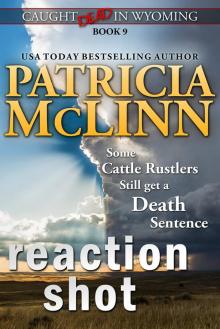 Reaction Shot (Caught Dead in Wyoming, Book 9)
Reaction Shot (Caught Dead in Wyoming, Book 9)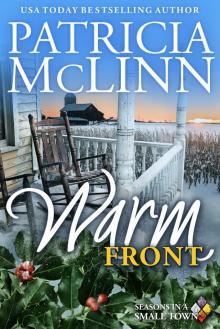 Warm Front
Warm Front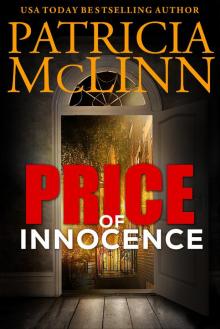 Price of Innocence
Price of Innocence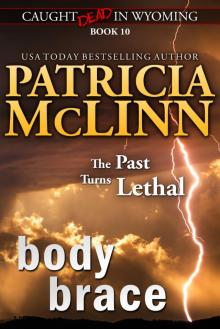 Body Brace (Caught Dead in Wyoming, Book 10)
Body Brace (Caught Dead in Wyoming, Book 10)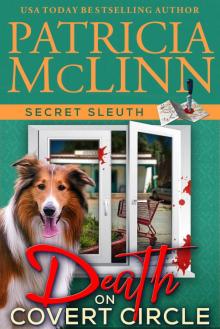 Death on Covert Circle
Death on Covert Circle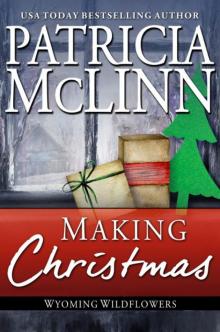 Making Christmas
Making Christmas Death on Torrid Ave.
Death on Torrid Ave.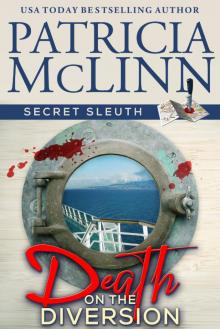 Death on the Diversion
Death on the Diversion The Rancher Meets His Match
The Rancher Meets His Match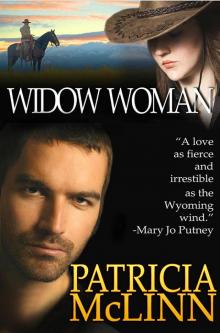 Widow Woman
Widow Woman The Runaway Bride
The Runaway Bride Hoops
Hoops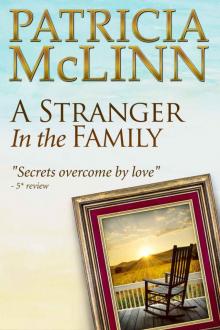 A Stranger in the Family (Book 1, Bardville, Wyoming Trilogy)
A Stranger in the Family (Book 1, Bardville, Wyoming Trilogy)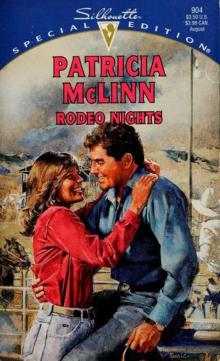 Rodeo Nights
Rodeo Nights Wedding Series Boxed Set (3 Books in 1) (The Wedding Series)
Wedding Series Boxed Set (3 Books in 1) (The Wedding Series)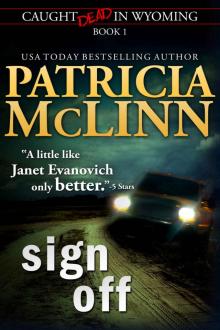 Sign Off (Caught Dead in Wyoming, Book 1)
Sign Off (Caught Dead in Wyoming, Book 1)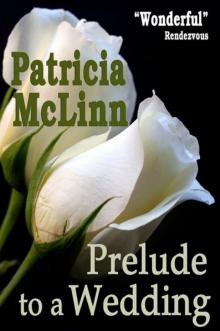 Prelude to a Wedding
Prelude to a Wedding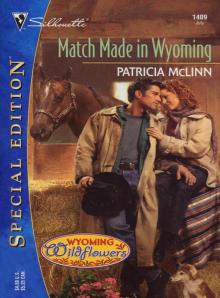 MATCH MADE IN WYOMING
MATCH MADE IN WYOMING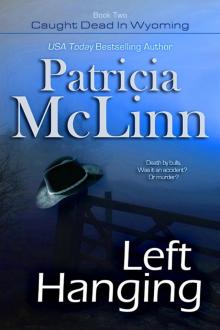 Left Hanging
Left Hanging What Are Friends For?
What Are Friends For?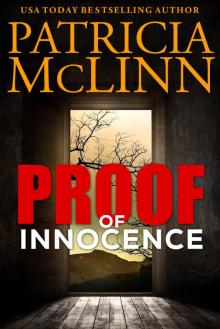 Proof of Innocence
Proof of Innocence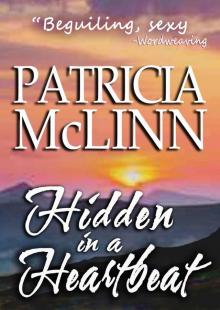 Hidden in a Heartbeat (A Place Called Home, Book 3)
Hidden in a Heartbeat (A Place Called Home, Book 3)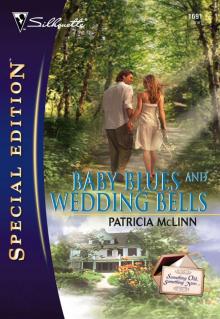 Baby Blues and Wedding Bells
Baby Blues and Wedding Bells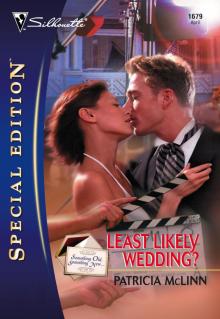 Least Likely Wedding?
Least Likely Wedding? Heart Stealers
Heart Stealers Grady's Wedding
Grady's Wedding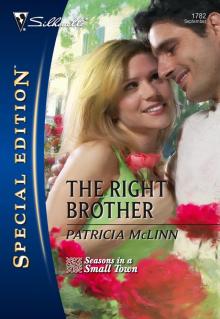 Right Brother
Right Brother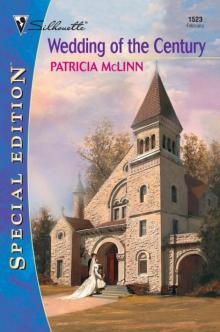 Wedding of the Century
Wedding of the Century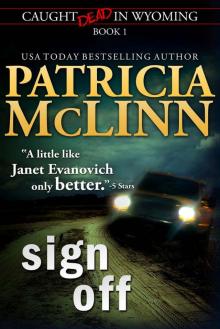 Sign Off
Sign Off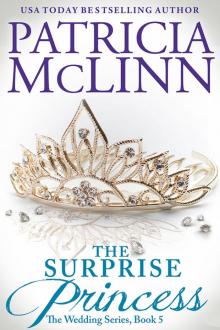 The Surprise Princess
The Surprise Princess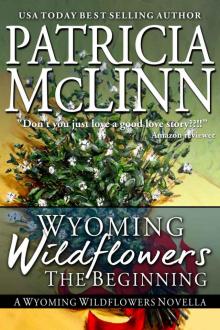 Wyoming Wildflowers: The Beginning
Wyoming Wildflowers: The Beginning